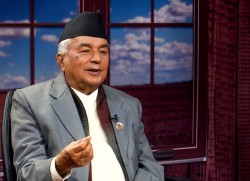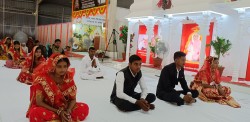Nepal
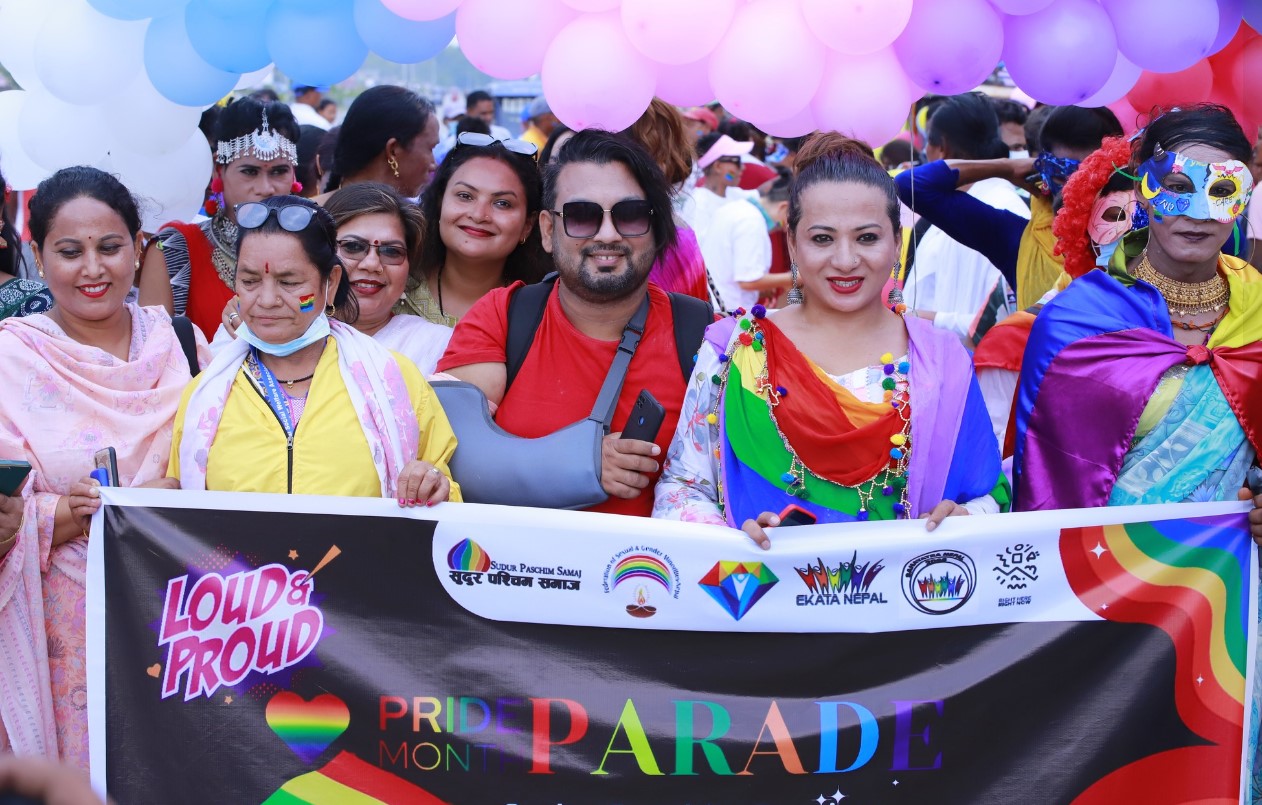
By Sakshi Agrawal
Despite legal protections, queer Nepalis from lower castes continue to face "double discrimination." Activists now highlight the importance of raising public awareness and implementing policies to protect these vulnerable groups.
Gauri Nepali had always known that she was different from other children in Kabri, a small village in Nepal. She belonged to a lower caste, and as a result, was constantly reminded of her place in society.
One day, when she was just a child, Nepali went to her friend's house. The kitchen had a tap under which utensils were stacked on top of one another. When she ran over towards the tap, her friend's family members forbade her from accessing that part of the kitchen. They claimed that if she touched the water it would become polluted. Nepali was confused and hurt, and that experience had scarred her ever since.
“I stopped making friends and going out. I would play at home alone. My parents became my friends,” the 33-year-old told FairPlanet. She said that the lack of communication and interaction with her peers caused her to become introverted.
As she grew up, Nepali’s social and networking opportunities remained limited - both because she was Dalit and LGBTQ+. After completing her Master's in Nepali literature, Nepali had found the courage to come out to her best friend. Unfortunately, her friend has not spoken to her for over three years since that time.
“My psychology and mental health were impacted during those years, because I felt that even a close friend of mine thinks in the way of society,” she said.
Caste discrimination and LGBTQ+ marginalisation are both prevalent in Nepal and often intersect, which results in unique challenges for those who belong to both communities. And while discrimination based on one's caste or sexual orientation is considered a violation of human rights according to the country’s constitution, queer people and Dalits continue to face difficulties in accessing education, employment opportunities and social integration.
Activists and members of Nepal’s LGBTQ+ community remain adamant that solutions exist to create a more inclusive society for all. However, they have yet to see them implemented in Nepalese society.
Double discrimination
Caste discrimination is rooted in Nepal’s history and culture, and the hierarchical caste system continues to affect the lives of millions, particularly those from lower castes, in areas such as education, employment, healthcare and justice.
In contrast, Nepal has made notable progress when it comes to LGBTQ+ rights, with a 2007 Supreme Court ruling recognising them as fundamental human rights. However, despite the passing of laws protecting LGBTQ+ rights and the country's reputation as being queer-friendly, deploy-held negative social attitudes and prejudice against queer people continue to inspire stigma and discrimination towards the community.
This ongoing marginalisation is experienced separately by members of both communities, except for in cases where intersectionality is at play: some members of the LGBTQ+ community also belong to lower castes, and thus experience “double discrimination.”
“Society has excluded Dalits or lower-caste people anyways. But when you reveal that you are transgender or part of the LGBTQI+ community, the chances of double discrimination are higher,” Pinky Gurung, President of the Blue Diamond Society of Nepal, told FairPlanet. “Society discriminates when you are a Dalit. But when you are part of the LGBTQI+ community, society and family both discriminate.”
Rights violated
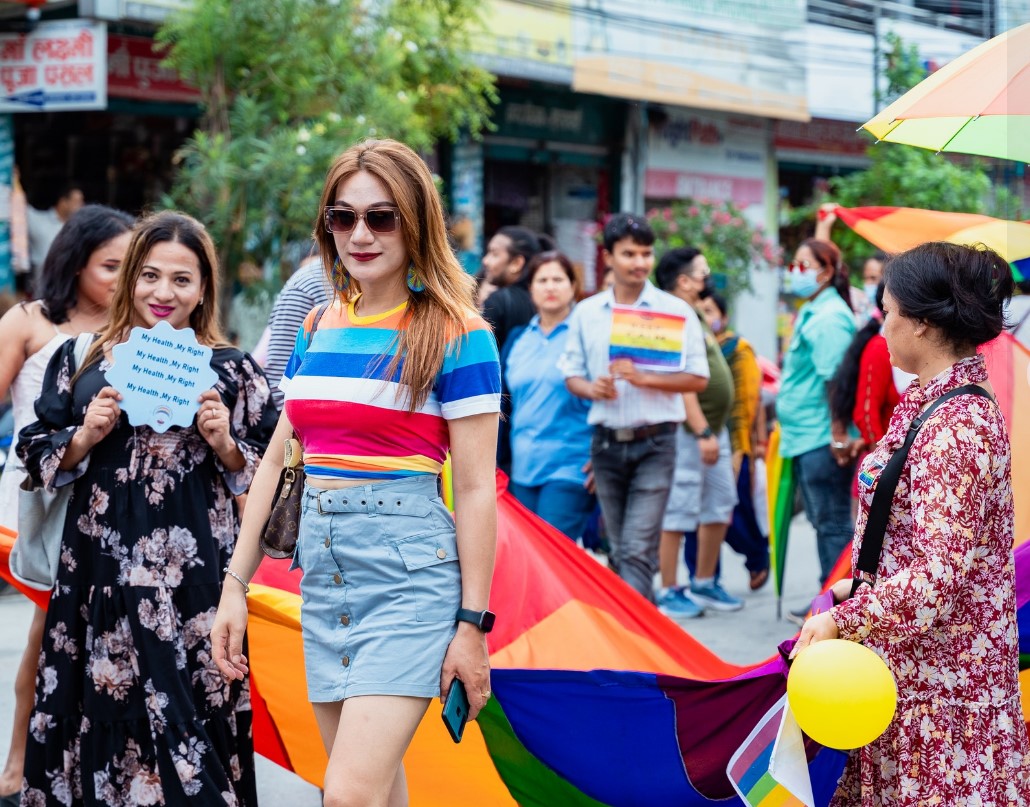
Nepal has enacted several policies to eradicate both caste discrimination and LGBTQ+ rights infringements.
The Caste-Based Discrimination and Untouchability Act of 2011 criminalises caste-based discrimination and untouchability practices, and prescribes penalties for related offences. The Muluki Ain, originally drafted six decades ago, was amended in 1991 to include a punishment for discriminatory acts.
The 2015 Constitution of Nepal prohibits discrimination based on caste, gender and sexual orientation, and recognises queer rights as fundamental rights, including the right to obtain a citizenship certificate that corresponds to one’s gender identity.
But despite these broad legal protections, many LGBTQ+ Nepalis continuously face challenges in accessing education. Many transgender youths, for instance, are being compelled to drop out due to increased bullying incidents, which subsequently leads to decreased employment opportunities and participation in public life, according to a report by Blue Diamond Society (BDS) and the Heartland Alliance for Human Needs & Human Rights - Global Initiative for Sexuality and Human Rights.
“While applying for a job, [candidates are expected to have a university degree] - but that is a disadvantage for us, as Dalit and queer do not have a strong education. Companies also look for people strong in English or Nepali language. But the access to the language has not been given to the Dalit community,” said Nepali from Kabri.
A 2015 report by the Dalit Civil Society Organizations' Coalition for UPR, Nepal and International Dalit Solidarity Network (IDSN) found that the literacy rate among Dalits stood at 52.4 percent, which was lower than the national average of 65.9 percent. A different report from 2009 by the Indian Institute of Dalit Studies had found that only 15 percent of the Dalit population has educational credentials, which is nearly half of the national average.
The same report also revealed that nearly 50 percent of enrolled children fail to complete primary education due to caste-based discrimination by non-Dalit students and teachers, parents’ insistence that children prioritise household chores, schools being located far from Dalit communities, as well as general frustration and depression.
“On top of that, if you add the LGBTQI+ community, very few transgender and queer people have been allowed to study. Most of the people in my network have left studying after the 12th grade,” Nepali said.
Furthermore, the significant obstacles in accessing education among Dalits lead to a lack of exposure to LGBTQ+ issues, which undermines their understanding and acceptance of the community. A study conducted in Nepal by the United Nations Development Programme (UNDP) and Blue Diamond Society found that individuals with higher levels of education were more likely to have positive attitudes towards LGBTQ+ people and their rights.
The same report also revealed that queer Nepalis face discrimination in public healthcare facilities, with doctors denying treatments and privately-owned transportation businesses denying them access to rides.
They have also been the target of attacks and harassment, which at times result in murder.
Mental health issues
This engenders a prevalent sense of inferiority among queer Nepalis, which often prevents them from coming out and embracing their identity, according to Rabina G. Rasaily, Executive Director at the Nepal-based Feminist Dalit Organization.
“We don’t have that kind of environment at the household, family or community level. I think that is a very basic problem in terms of identification,” she added.
Nepali seconds Rasaily. Based on her own experiences and interactions with other community members, she has observed that individuals who carry a dual identity are generally not outspoken.
“We have come from a marginalised background. We don’t have an environment where we can put our points strongly about how we feel or what we want,” she said.
Solutions
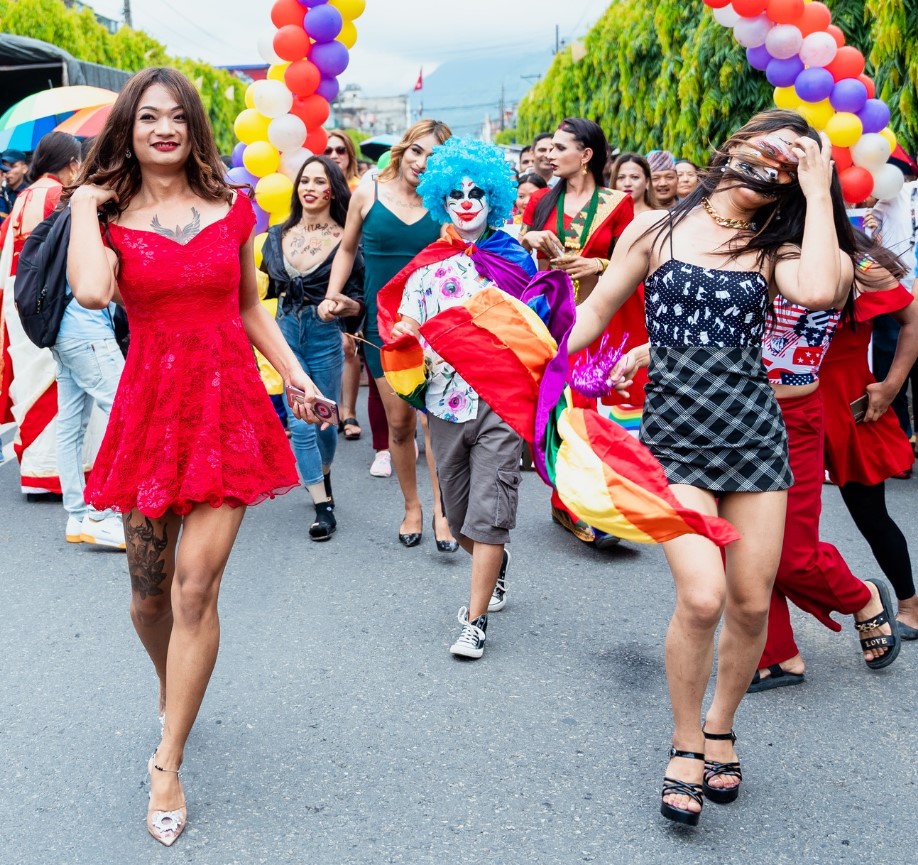
Nepali activists argue that the first step in addressing the discrimination of Dalits and LGBTQ+ people in the country is raising public awareness. “In Nepal’s society, people need to show equal behaviour irrespective of caste, physical status or geography. They should treat everyone as an equal and human. That’s the thought people should have,” said Nepali.
They point out, however, that this would be no easy task, particularly in cases of caste and LGBTQ+ intersectionality, which would require the unlearning of deep-seated prejudices.
“In our Hindu society, the caste system is still prevalent where the Dalits and other marginalised castes have been facing discrimination and exclusion from the society every day,” said Rasaily.
They further point to the importance of implementing existing policies designed to protect these minorities and expanding their scope.
“It has been over 70 years of the Dalit movement in Nepal, but there are a lot of drawbacks in the movement despite that. All the policies made to target the Dalit community have taken into account only the binary genders. That’s also true for every other policy,” said Nepali, who believes that policies protecting sexual and gender minorities should be considered alongside laws protecting other types of minorities, including lower caste members.
“The ultimate beneficiaries are our [communities], and for that we need legal recognition of such communities in terms of accessing the basic rights like health care, education and employment opportunities so that they can also live a dignified life,” said Rasaily, who believes that a multi-sectoral, integrated approach is key in addressing discriminatory sentiments and practices.
(Via FairPlanet.Org, republished under creative commons)
